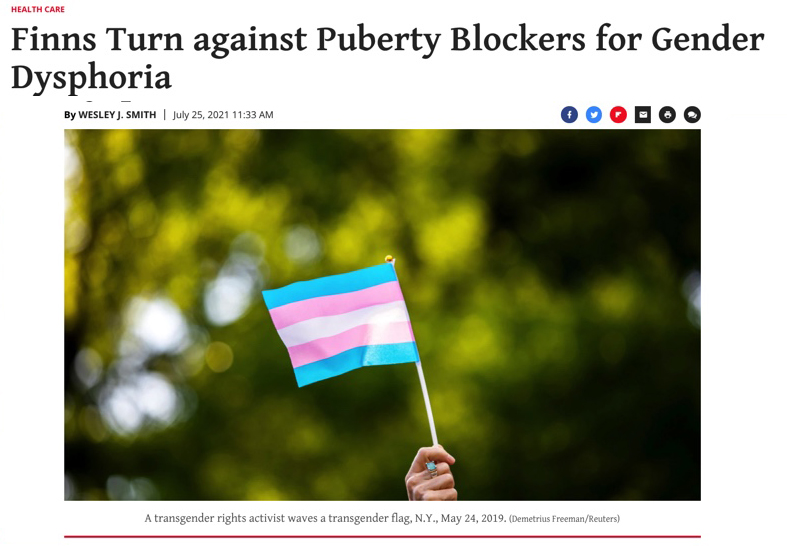
Finnish medical guidelines are now opposed to most puberty blocking and adolescent transitioning, except in the most severe cases and, then, only in a research setting.
First, note this eye-opener that most cases of youth transgenderism resolve during puberty. Moreover, puberty blocking should not be among the first interventions attempted to relieve the child’s mental anguish. From the guidelines on treating youth gender dysphoria recently (unofficially) translated into English (my emphasis):
Cross-sex identification in childhood, even in extreme cases, generally disappears during puberty. However, in some cases, it persists or even intensifies. Gender dysphoria may also emerge or intensify at the onset of puberty. There is considerable variation in the timing of the onset of puberty in both sexes. The first-line treatment for gender dysphoria is psychosocial support and, as necessary, psychotherapy and treatment of possible comorbid psychiatric disorders.
Puberty blocking can cause serious physical side effects:
Potential risks of GnRH therapy include disruption in bone mineralization and the as yet unknown effects on the central nervous system. In trans girls, early pubertal suppression inhibits penile growth, requiring the use of alternative sources of tissue grafts for a potential future vaginoplasty. The effect of pubertal suppression and cross-sex hormones on fertility is not yet known.
As I have been saying, puberty blocking is human experimentation:
In light of available evidence, gender reassignment of minors is an experimental practice. Based on studies examining gender identity in minors, hormonal interventions may be considered before reaching adulthood in those with firmly established transgender identities, but it must be done with a great deal of caution, and no irreversible treatment should be initiated. Information about the potential harms of hormone therapies is accumulating slowly and is not systematically reported. It is critical to obtain information on the benefits and risks of these treatments in rigorous research settings
